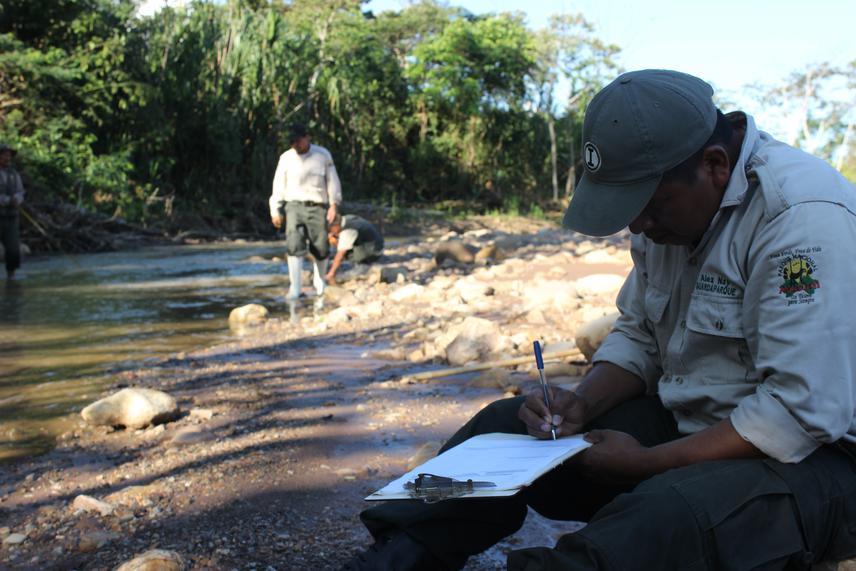Anne Toomey
It is well established that there is a gap between science and practice in the field of conservation. This project aims to bridge this gap by finding ways to make scientific research more locally relevant and participatory in by holding workshops to which a diversity of stakeholders (communities, park staff and scientists) will be invited to discuss the past, present and future of research in the Madidi region.

Madidi park guard Alex Nae recording water levels.
The fate of the Bolivian Amazon is at a crucial moment due to current governmental policies that support large-scale economic development in lowland protected areas and indigenous territories. A likely area of conflict is Madidi National Park, one of the most biodiverse places on the planet, which is overlapped by the Takana, San Jose de Uchupiamonas and Leco indigenous territories, whose land claims cover approximately one-third of the park’s area. Protected areas administration and indigenous leaders are the key decision-makers in these overlapping lands, but they often lack the information necessary for its sustainable management.
During June-December of 2012, I conducted fieldwork along with Bolivian researchers to explore the extent of local participation in research and management in the park. Semi-structured interviews with individuals living and working in Madidi revealed a lack of communication between the various stakeholders, but also growing recognition (especially among indigenous leaders) of the role of research for providing technical information about their territories. Such information is perceived as vital, as it can help communities to create proposals for the sustainable management of their lands as alternatives to large-scale development projects.
This project will take a step towards inserting research into co-management strategies in Madidi, with the ultimate aim of building and strengthening alliances between scientific institutions and communities for mutually-beneficial research. Specifically, the project aims to:
1) bring key stakeholders to discuss their perspectives on research activities in the region and identify priority research areas (geographical and thematic),
2) understand to what extent previous and current research incorporates local worldviews (traditional knowledge, values and expertise)
3) find ways to make future research more relevant and participatory. Some questions to be discussed are: What experiences have local communities had with researchers in the past? In which cases has research led to management decisions? To what extent have researchers shared results with local stakeholders?
The project team is comprised of 2 natural and 2 social scientists with more than forty years of cumulative experience working in the region. As a result of this project we will create a printed guide for future researchers in the region, specific to each indigenous territory, with a list of priority research needs as well as social and cultural concerns.